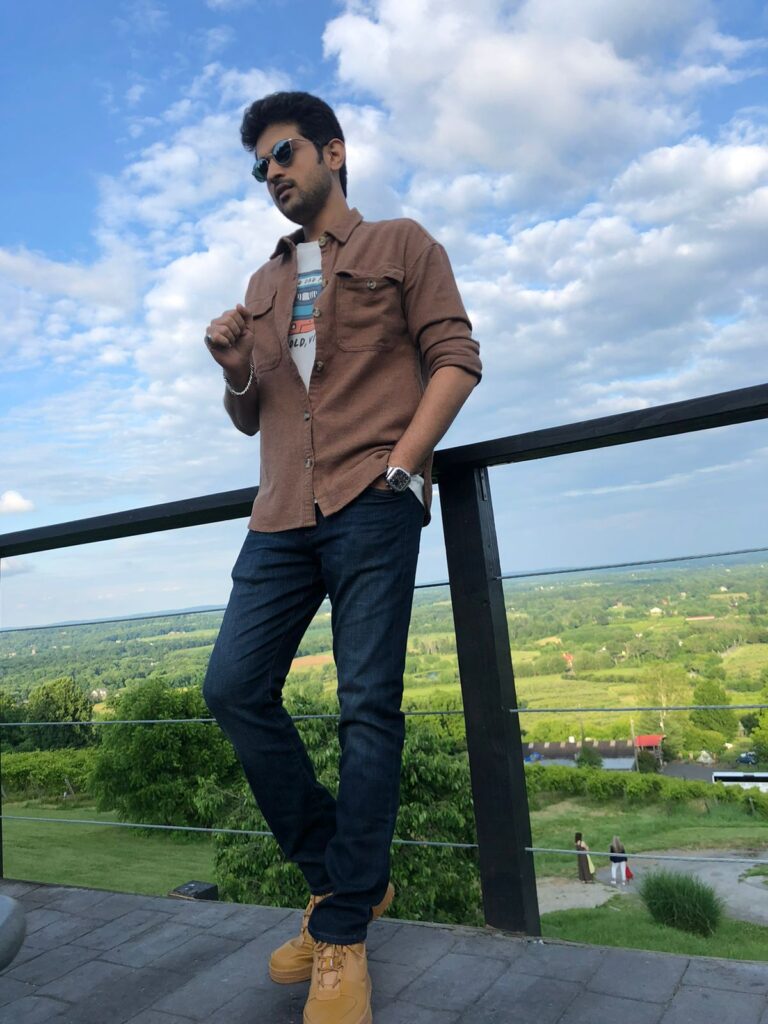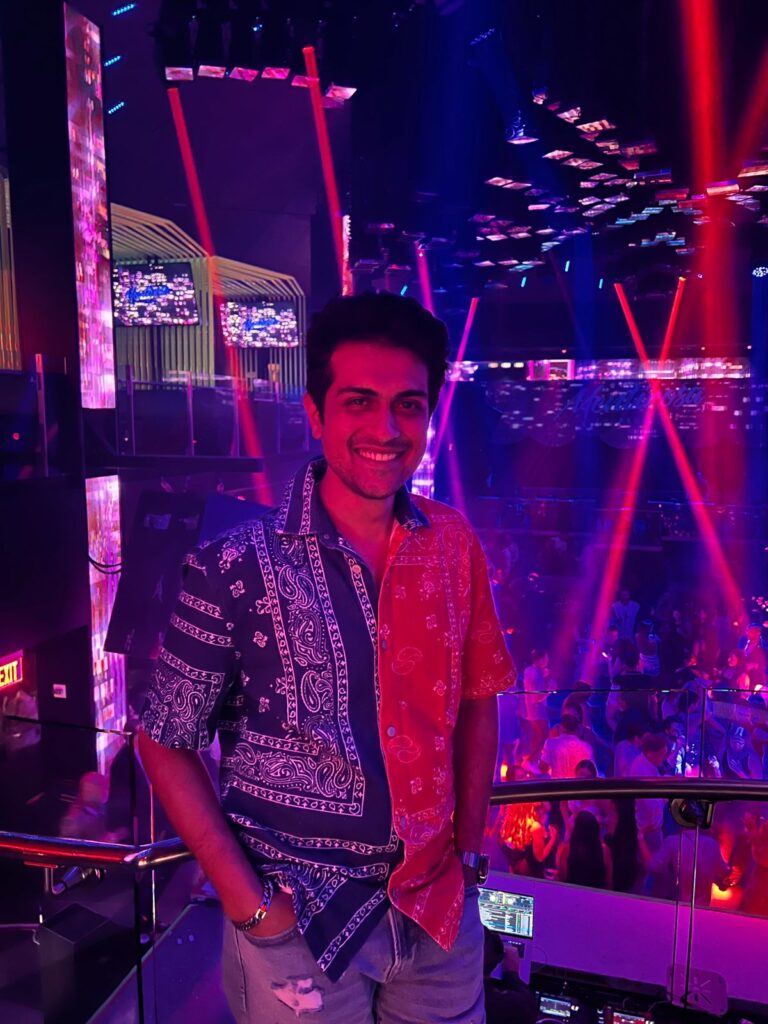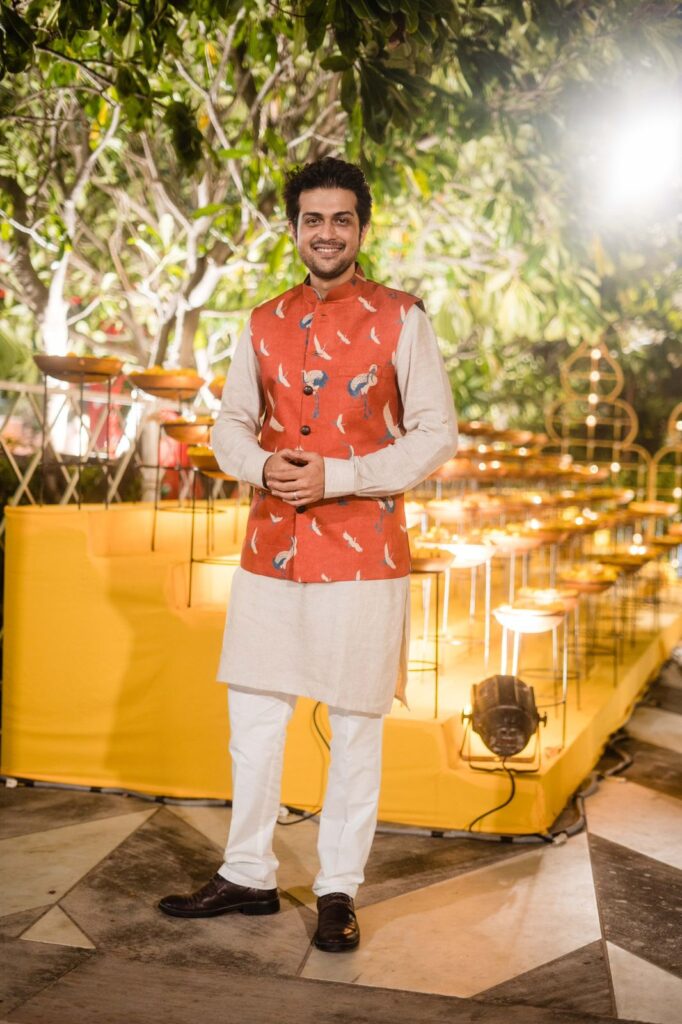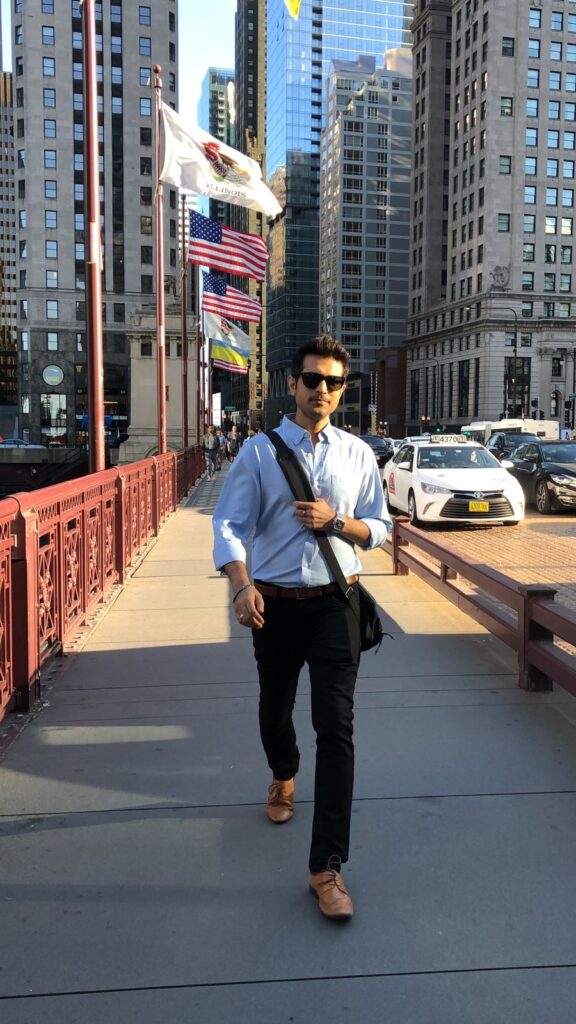Raunaq and his family values
Raunaq Kamdar was raised in Ahmedabad after being born in Mumbai. His mother worked as a physiotherapist, his father was an architect, and his grandfather worked at a textile mill. The Kamdar family has always emphasized work-life balance and the importance of taking time for oneself rather than working overtime.
In order to avoid incurring additional costs, Raunaq’s father initially set up office within his home. However, he soon realised the benefits of having a separate office from his home, where he could spend time with his family, work, and be accessible at all times. Later, his mother opened a clinic there as well. Raunaq discovered that the concept of having a common workplace for the entire family that is also their place of home was the best for quality of life and a healthy balance between work and personal life.
Raunaq’s educational qualification
Raunaq’s brother also chose the architect sector, and after seeing his brother and father work in the architect fields, he became interested and decided to pursue a career in architecture. He graduated from St. Xavier‘s in Ahmedabad and then went on to study architecture at CEPT. Following his studies, he joined his father and brother in the architectural practice.
Raunaq’s family business of architecture
They prefer to design private projects rather than collaborate with building associations or the government. They mostly worked on restaurants, weekend houses, and private residential and commercial projects. To name a few, “Govardhan Thal” and the first two outlets of “Bavarchi” were some of the projects on which he worked as an architect. He is not working full time in the architectural industry but continued to assist friends and relatives with their personal projects.
Work ethics and process
Raunaq always liked to concentrate on vernacular projects during his journey. He believes that architect projects should always be planned in accordance with geography and climate. Before producing such new ideas, he always believes in conducting thorough study and research. He believes that such modernization should not have a negative impact on the environment. He always chooses to work on projects by following the basic principles of architecture, which have origins in our Vedas as well. According to him, residences with courtyards and backyards are ideal for Indian topography and climate. While multi-story buildings may require more energy.
He hardly had any role models, but to mention a few, he was inspired by the work of numerous contributions and well-known figures in the architectural profession. He particularly loved projects by Louis Khan, the man responsible for the IIM’s main design, Le Corbusier, who created the Ahmedabad Mill Association Building, and Antoni Gaudi.
His entrance to the silver screen
While he was working as an architect alongside his father and brother, one day, he received a phone call from a high school acquaintance who works in the film industry. She contacted Raunaq and requested an audition for her film. Raunaq was interested, so he auditioned and was chosen. He landed his first film and began his career as a film actor. Later, he worked on three films for Dhwani Gautam over the course of a year and a half, in addition to his architect projects.





But this was not his first time on stage. Raunaq performed in his first theatre production in 2001, when he was in 10th grade. Raunaq chose to be a part of that play simply because it was a free class for anyone who wanted to audition. He chose the free class option and auditioned for the two-and-a-half-hour full-length play. He got the role after passing the audition. During rehearsals, he became interested in theatre plays and acting. He afterwards performed in the theatre for over 17 years.
Raunaq’s journey as a theatre artist
He has always appreciated learning new things and performing in amateur theatres throughout his career as a theatre artist. He has done a few commercial plays as well, but he prefers to produce experimental plays. He considers himself fortunate since theatre allows him to learn things other than acting. While playing theatre with very limited resources, he could learn skewing, dying, making bulbs, lights, basic electric works, and more. Later, he created a module for self-sustaining theatres and gave seminars and workshops on “How to Work on Theatre Plays with Limited Resources.”
Recognition as an actor
To avoid framing himself in a confined frame, he sought to work with diverse banners and positions. He began to consider acting as a career and met with a few directors and producers. He received a call from Krishnadev Yagnik for the film “Naadi Dosh” in which he worked with a whole new crew and in a different character. Later, he received a film “21 mu tiffin” from Vijaygiri Bawa, which was the first Gujarati film to be shot after the covid pandemic lockdown.
Following those two films, he received positive feedback and recognition. Raunaq has opted to leave the architect sector and pursue a career in acting beginning in March 2023. He did “Chabutaro” an experimental film with a good story, “Happy Family” in which he also played a completely different character that he had never portrayed before, and “Luckiro” a commercial film in which he played a completely different character. He recently wrapped production on three projects. One is a romcom, one is a family drama, and one is a 13th century historical film.
Raunaq’s believe as an actor
Raunaq always aspires to maximise collaboration and gain knowledge from each one. Since he enjoys experimental films more, he prefers to play a variety of roles. He once received the remark that because of the way he appears to be a member of contemporary high society, it would be impossible to cast him in any project as a poor man. Since then, he has worried about the remark and believes that such forecasts may limit his ability to consider a variety of options.
He was always serious about his choices and image building. He never wanted to put himself in a box because he wanted to be considered by casting directors for as many different types of roles as possible. To avoid such imprints, he rarely repeats the same banner films and type parts.
He prefers to take breaks when he wants to, instead of breaks due to no work on hand. He is not a huge admirer of winning awards or being covered. After a long journey, he would love to be at a level where he could acquire a variety of experimental parts.
His love for Gujarati film industry
He enjoys many aspects of the Gujarati film industry, but nothing makes him happier than being a part of one where female actor are adequately compensated for their efforts and skills. He views this as evidence of true gender equality and women’s empowerment. Another thing about which he is proud is that, despite the fact that he has worked with many co-stars to date, many of them have married women who are excellent at juggling their careers with their families.
Favourite pass time
Raunaq has enjoyed watching films since he was a little child, and he continues to do so today. He enjoys telling stories as much as reading literature. He enjoys traveling and has visited nearly all of India, with the exception of the North East. He makes three journeys a year, two to India and one to another country.
Raunaq’s future plans
He might work on the short film he had always wanted to write and direct. He reserves the rest for events to promote his next movies. He now believes that his early success after leaving his primary career as an architect was part of a divine design.

![]()
